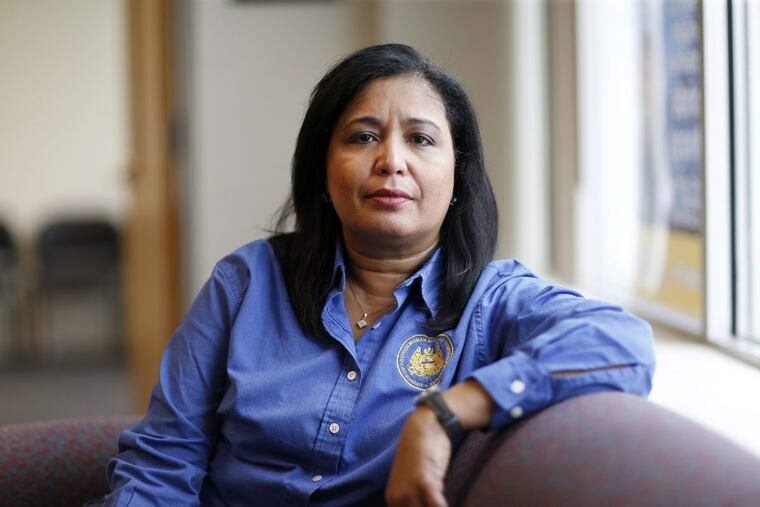Could Philadelphia City Council block Mayor Kenney's proposed safe injection sites?
City Councilwoman Maria Quiñones-Sánchez, whose district includes the Kensington neighborhood at the center of the city's opioid crisis, is gearing up for a fight with the Kenney administration over its proposed safe-injection sites. She is not alone. Other council members have raised skepticism over the administration's plans.

Does Mayor Kenney need lawmakers to sign off on his plan to make Philadelphia the first U.S. city to open safe injection sites for people addicted to opioids?
The Kenney administration doesn't think so, but some City Council members beg to differ.
The city announced on Tuesday that it will encourage private groups to create facilities where people can inject drugs under medical supervision and be revived if they overdose. On Wednesday, key members of Council were raising concerns and suggesting that they have the power, if they choose, to throw sand in the gears of Kenney's proposal — or at least extract concessions on the siting and management of the centers.
City Councilwoman Maria Quiñones-Sánchez, whose district includes the Kensington neighborhood at the center of the city's opioid crisis, said she isn't opposed to the idea. But she argued that the sites should be part of several "comprehensive reforms" to fight the epidemic, such as working with police to stop the flow of drugs into the city and close open-air drug markets.
"There's no plan," Sánchez said, adding that the city's official presentation on the proposal looked "like an intern gave it to them."
There are a few ways that Council could potentially weigh in, said Sánchez, first through its power to make appropriations.
"The city said they are paying for wraparound services" at the safe injection sites, such as counseling and addiction treatment — but Council would pay for it.
"So it's all bull—," she said.
The Kenney administration, conversely, said private entities — not the city — will pay for wraparound services provided at the sites.
Ajeenah Amir, a spokeswoman for Kenney, however, said Wednesday some of those groups could connect people to services offered by the city's Department of Behavioral Health and Intellectual disAbility Services.
Sánchez said she plans to take a fine-tooth comb through that department's $1.6 billion budget, and would be hesitant to approve funding for any new services at the safe injections sites before a thorough review.
"We've really got to pick apart how we are spending" the funds, she said.
Council also may be able to exert its influence over sites through "councilmanic prerogative," which gives lawmakers control over land use decisions in their districts. City officials said they don't yet know what type of zoning a safe injection site would require.
Sánchez also pointed out that Council recently passed a bill prohibiting medical offices in certain districts unless they obtain a zoning variance. Critics of the legislation said its real intent was to ban methadone clinics.
Other Council members have also expressed skepticism over Kenney's plan and will call for hearings on the matter when they return to session Thursday.
Cindy Bass, who chairs Council's Public Health and Human Services Committee, said she has several questions about how such sites would be rolled out and how the public would have input into the matter.
"If we are going to do it, it has to be done right," she said. "That's an if. I don't know that there is a buy-in yet from the community."
The city said it will seek community input, though the process seemed unclear. "Specific plans for the outreach are… contingent on the selection of a private partner and a selected site," said Amir.
Councilman Mark Squilla said the city must address the homelessness problem before it considers safe injection sites, adding, "There are more important issues the city needs to address first."
A spokeswoman for Council President Darrell L. Clarke, who has been silent on Kenney's plan since it was announced Tuesday, said his office "will be reviewing details of the mayor's proposal, especially the legal aspects, as they are made available to us." She did not elaborate.
Former Mayor and Gov. Ed Rendell believes safe injection sites could be created without Council approval. When the city started a needle exchange program in his administration, he said, he briefed Council but didn't seek its OK. He thinks safe injection sites are similar.
"This is a decision that can be done by the Health Department," Rendell said.
Sánchez, though, said she doesn't "see a scenario where Council and the community will not be appropriately consulted in the process." She said she believes that Kenney, a former Council member, "understands that any placement of this has to be discussed with and embraced by" city lawmakers.